|
By Lilo Noort, CHAIM Centre Communications Intern A One Health approach to the health issues that face the planet today requires collaborations across multiple sectors and disciplines locally, nationally, and globally. One Health works at the intersection of human and animal health, with the natural and built environments contributing to and transforming this relationship. The 2022 One Health Challenge concluded in March, when student groups presented their novel solutions to the challenge, they were given to create an intervention that promotes the public health benefits of enjoying the use of greenspaces in urban areas, while balancing the potential negative impacts on ecological health and biodiversity. A group of expert judges from different sectors deliberated over each solution. And following considerable discussion, they selected the creators of “Green Days,” for the top prize in the competition. This interdisciplinary team was made up of undergraduate students Malik Sylla (Computer Science), Veronica Yung (Interactive Multimedia and Design), Erika Uzoegwu (Health Sciences), and Frank Li (Engineering Physics) who were mentored by graduate student Sebastian Steven. “We knew we wanted to focus on green spaces and accessibility, and that idea evolved into our final template surrounding children and school children in urban centers. The entire aim of the project is to bridge the gap between green spaces and low-income children, because we know that these kids often experience a lack of green space access,” said Malik Sylla.
“The program is all about giving these children access to green spaces, and professionals who can teach them more about it,” Frank Li continues. The team discussed how they hoped that their innovation will help to connect young people to nature at an early age. They stressed the importance that green spaces can have on one's mental wellbeing, and how access to these spaces can improve the lives of children. “It was not our first idea at all, and we actually had to work on a few ideas before we had that aha moment.” “One of the most important things was looking at the gaps in the currently existing programs,” said Veronica Yung. She explains how while in school, she was only every shown a handful of career paths to consider. “Showing kids that there are options outside of what they show you in high school, was important to us,” she explains. “I feel like if kids exposed to opportunities to get outside the classroom and look at the world differently, they can make better choices later in life.” Green Days was a labor of love. The team explained how their combined talents, in a variety of fields, offered a unique advantage for completing the challenge successfully. “Health is more than just the choice you make,” said Erika Uzoegwu. She expressed how having an interdisciplinary approach to research is crucial for a project like this. Erika went on to describe how health is affected by “the choices that are like provided to you and that you have access to.” Uzoegwu outlines how one of the team’s biggest goals was to use their collective expertise to help uplift others. Their collective efforts to create a health innovation, has a goal of changing the lives of children from underfunded communities. “I heard a Mohamed Ali quote once that said, ‘service to others is the rent you pay for your room here on earth,’ which I think is really powerful in the One Health Context,” Sylla said. He explained how the team’s project developed over discussions about growing up in urban centers in North America. “It was important for us to look around and see the things we experienced as kids, the challenges we faced and how they can be improved,” he concluded. Moving forward the team recently presented “Green Days” at Carleton’s annual Life Sciences Day 5.0 on May 10, 2022. In line with the 2022 OHC, this year’s conference topic was surrounding healthy communities and the team had the chance to show case their intervention to many academic, government, and industry attendees. A long-term goal of the Green Days project is to expand across the country and help connect inner-city children to nature and environmental education. “Our generation is the future, and we have the ability to change the world,” Sylla said “we want to use our platform and the privilege we have to make a change for these kids, so they can continue to change the world for the better.”
0 Comments
by Lilo Noort, CHAIM Centre Communications Intern 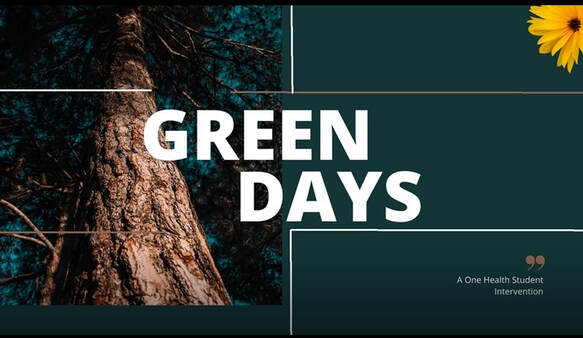 A thrilling six weeks came to an end this past Saturday, as the 2022 One Health Challenge concluded. The One Health Challenge is a systems-based approach that brings together human, animal, and environmental health to create an interdisciplinary approach to guide strategies for global health issues. Back in January, Carleton undergraduate students were asked to consider the need for outdoor green spaces highlighted by the COVID-19 pandemic. Over 30 students from a range of disciplines, including Industrial Design, Neuroscience, Engineering, Environmental Science (and more!) formed interdisciplinary groups. Teams were led by a graduate mentor also from different faculties and were each given the task of creating an intervention that promotes the use of green spaces to achieve public health benefits while balancing the potential negative effects on ecological health and biodiversity. Once they were introduced to the Challenge, they had the opportunity to work with a Facilitator from IBM specializing in design thinking and problem definition for the first two weeks of the Challenge. Throughout the Challenge the students collaborated with their mentor to narrow their scope and consider the various perspectives of the One Health approach as they developed their intervention. They were supported by background information on the topic and also allowed to branch out to find different resources that would inform a product that showcased their expertise, creativity, and out-of-the-box thinking. Student groups were then tasked with recording a 3-minute video pitch outlining their intervention in an engaging way for judges and audience members, and also supporting documentation for the judges. The Final Event on March 19th began with introductions from the Director of the Centre, Dr. Kim Matheson, who provided a recap of the Challenge and thanked teams and mentors for their hard work over the last six weeks. This year, the event was introduced in partnership with the IBM Center for Advanced Studies and featured community experts from Ottawa Public Health, IBM, and The Delphi Group forming the judging panel. The videos were played for the judges and the Carleton community members on the call who got to see a broad range of solutions surrounding greenspaces from physical spaces to community-based programs. Click here to see all of the 2022 OHC Team’s video pitches! After the initiatives were presented, judges met with teams, to ask questions about their projects and learn more about their rationale and approach. While the judges deliberated, the audience was invited to a screening of a TEDx talk on Urban Green Spaces by Jessica Pendergrass. The Challenge concluded when the judges announced the winning team: 'Green Days' made up of undergraduate students Malik Sylla, Veronica Yung, Ericka Uzoegwu, and Frank Li who were led by graduate mentor Sebastian Steven. Runner-ups were the ‘Community Flyers’ Team and the ‘Flowers for Hope’ Team. The winning team of the 2022 Challenge will receive a $100 cash prize and the chance to present their intervention at Carleton's annual Life Sciences Day 5.0 on May 10th, 2022 on Healthy Communities! The judges were impressed with the dedication and creativity from the student projects and are following up with the students teams to build on these ideas and to hopefully make them a reality. The CHAIM Centre’s OHC Team is immensely proud of the hard work and commitment from all the student participants and graduate mentors throughout the 2022 OHC Student Challenge. Congratulations to all! By Jennifer Vorobej, 4th-Year Neuroscience and Mental Health Student
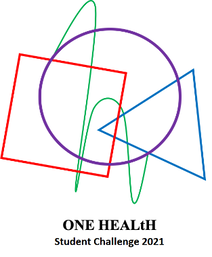 This past Thursday marked the end of the 2021 One HEALtH Student Challenge! This year’s Challenge was held fully online over the last 6 weeks with a record number of students taking part. The Launch Event was held in late January, at which students were introduced to the One Health approach with a focus on specific hardships that were amplified by the COVID-19 pandemic. Students this year got the chance to form their own multi-disciplinary teams, and came from a wide range of disciplines, including Neuroscience, Health Sciences, Architecture, Engineering, Computer Science, and Mathematics! Each team was supported by a pair of graduate mentors with diverse expertise. Their challenge was to consider the issues of systemic neglect, social isolation, and loneliness among older adults in Canadian society in light of the pandemic. The goal was to design an intervention (an application, program, tool, product, or strategy) that brings together young and older adults in a manner that is beneficial, sustainable, and appropriate under the restrictions put in place to minimize the spread of viruses such as COVID. 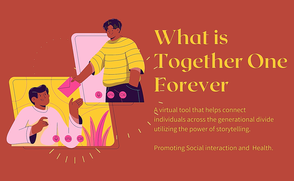 In the first few weeks of the One Health Challenge guest speaker presentations were held and lively conversations took place between students and non-profit and social enterprise leaders, as well as fellow students who took participated in programs aimed at fostering cross-generational connections. Soon after receiving input from the speakers and mentors, the students were well on their way to narrowing their scope and developing an intervention that would consider diverse perspectives and out-of-the-box thinking! A few short weeks later, the teams came together on March 18th for the final event. Their creative video pitches were featured for our judging panel. The students’ solutions showcased a wide variety of approaches to promoting cross-generational connections, touching on issues including food, storytelling, recreation, education, new technology, and design. Click here to see all of the teams’ video pitches! After intense deliberation and a Q&A with each of the teams, the judges decided on a winner: Together One Forever, created by students Kareena Ajith, Andreanne Morera Tanguay, Natasha Nayar, Sophia Rivas, and Matthew Wilson (mentored by Sam Petrie and Aisha Robinson). Their web-based program would pair seniors (65+) with youth (18-30) to create a virtual workbook about the older adult's life and experiences, developed collaboratively through interactive storytelling sessions. 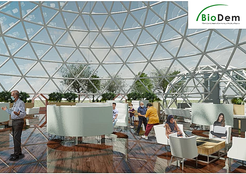 The judging panel also identified a runner-up: BioDem, created by students Neha Khanna, Izzy Munevar-Pelton, Hailey McGuire, Jaimie Reynolds, and Molly Zhang (mentored by Derek Mikola and Noa Gang). This solution combined innovative architecture with community programming to create an accessible, COVID-friendly space for cross-generational interaction. Each of the members of the winning teams received a $100 cash prize and will be presenting their work at Carleton University’s Life Sciences Day 4.1 on April 6th 2021! The judges were enthusiastic about the quality of the solutions, and several expressed interest in partnering with the student teams to pursue their ideas further. We are incredibly proud of the exemplary work and dedication from the students and mentors who helped make this year’s One HEALtH Challenge our most successful one yet! |
Archives
March 2023
Categories
All
|

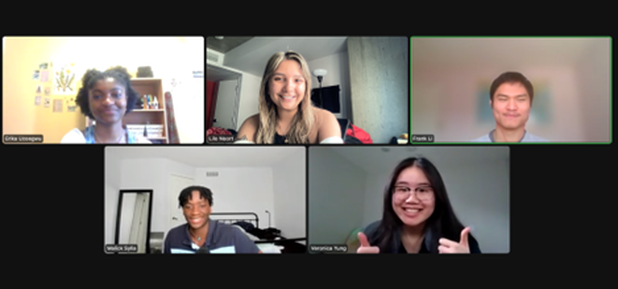
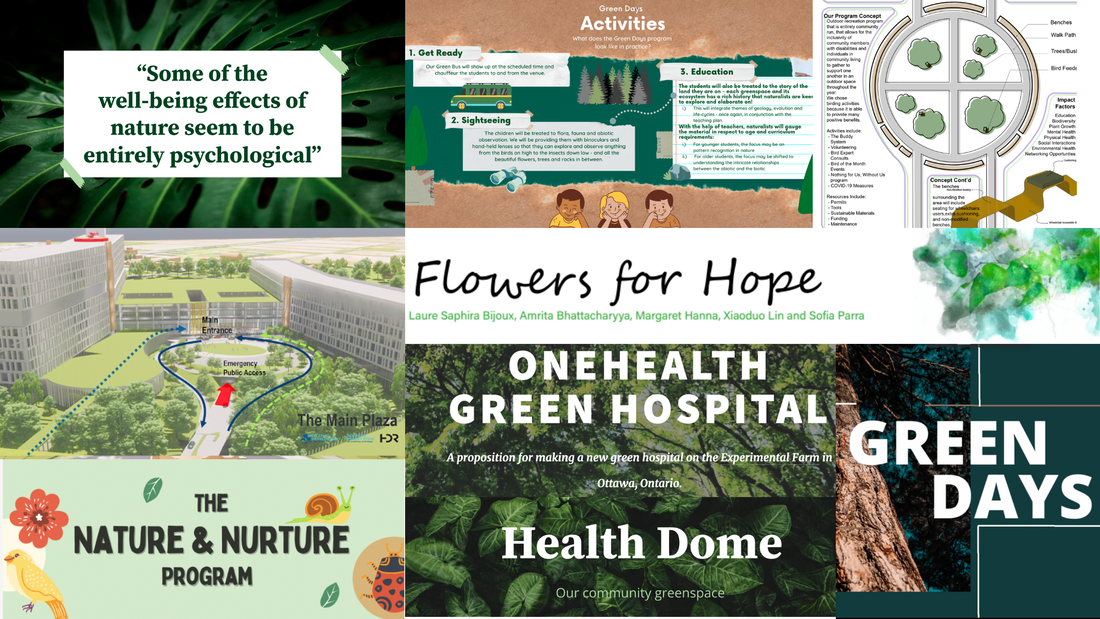


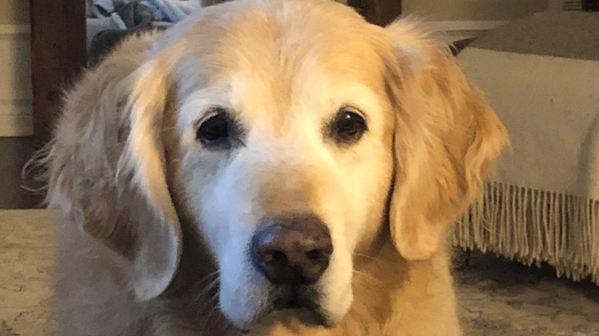
 RSS Feed
RSS Feed